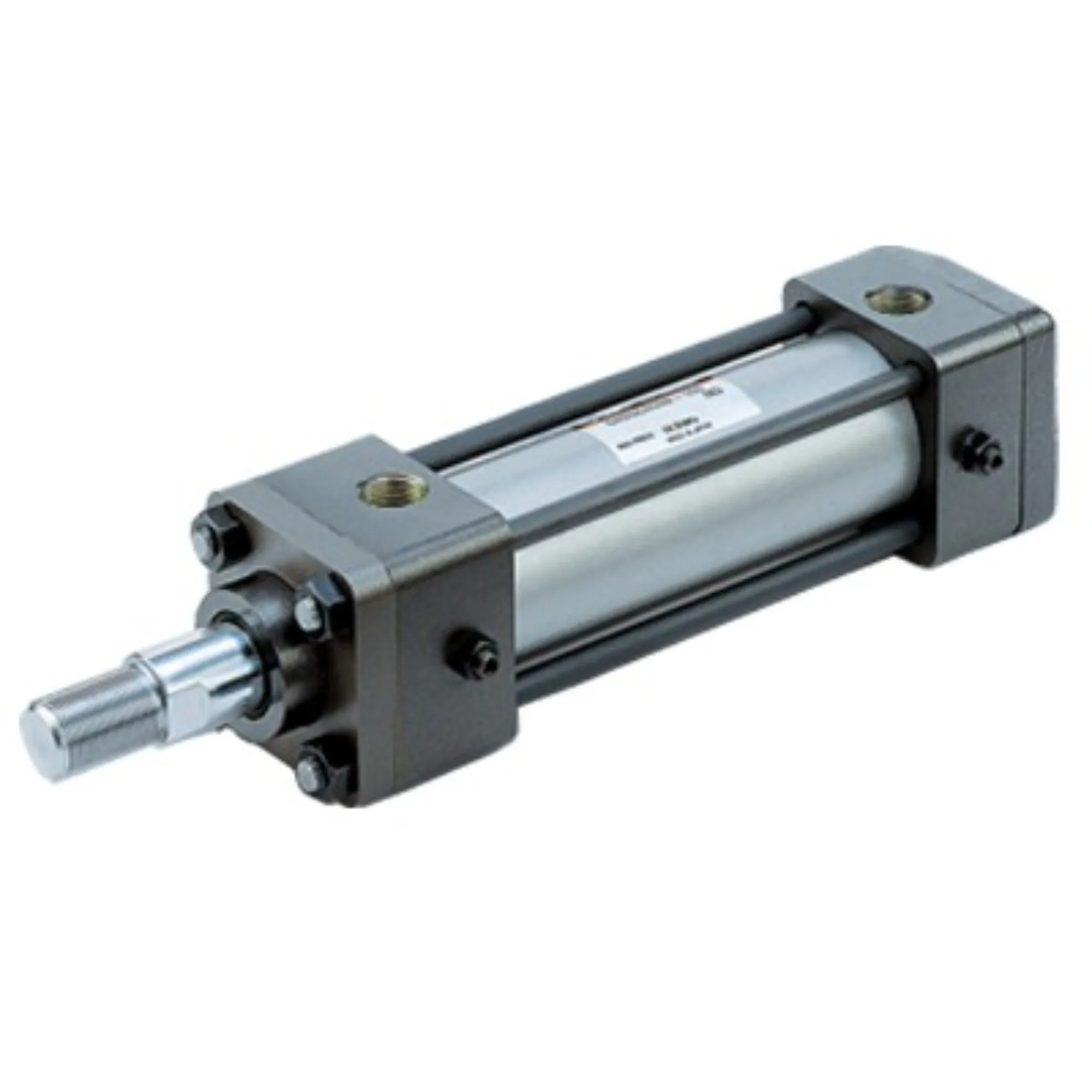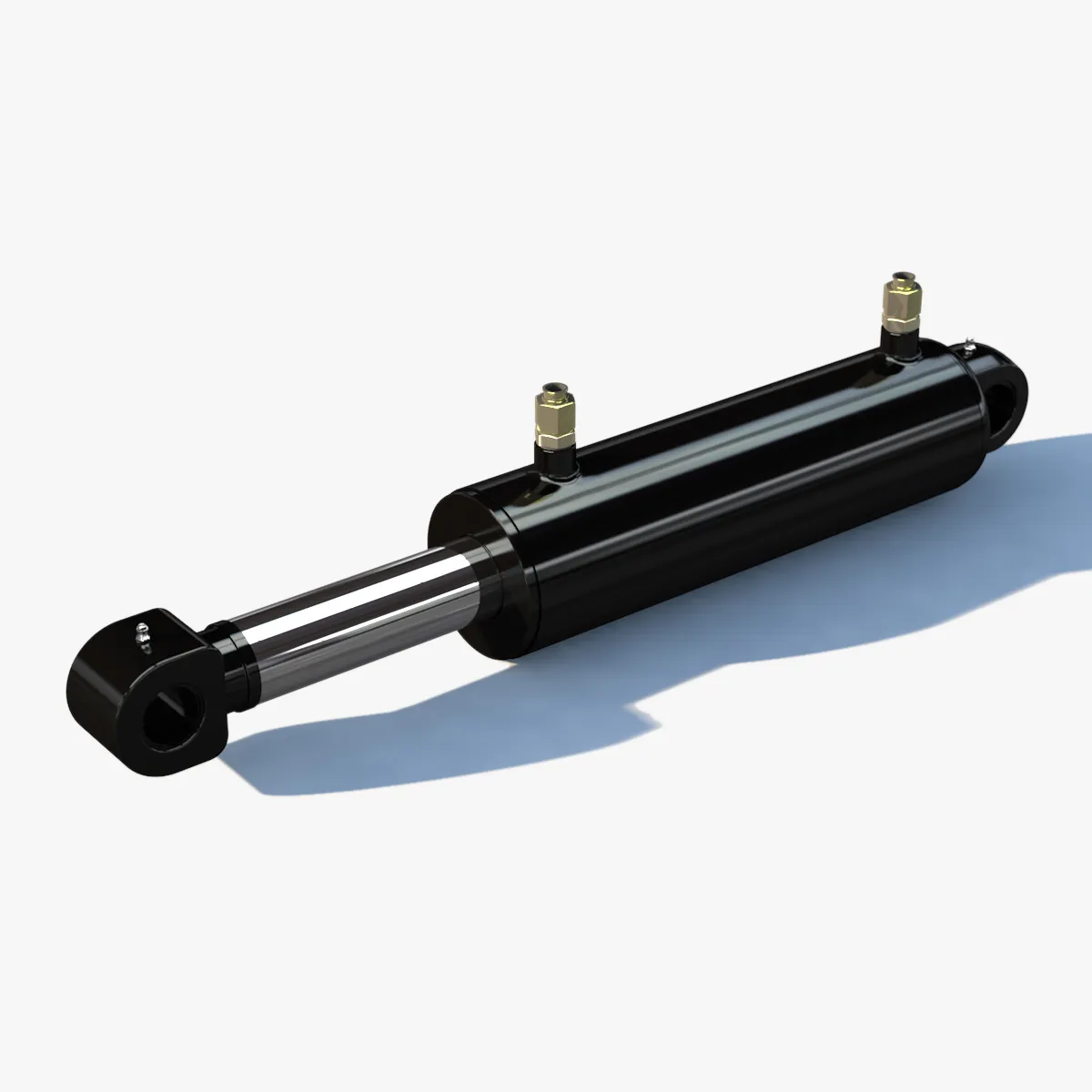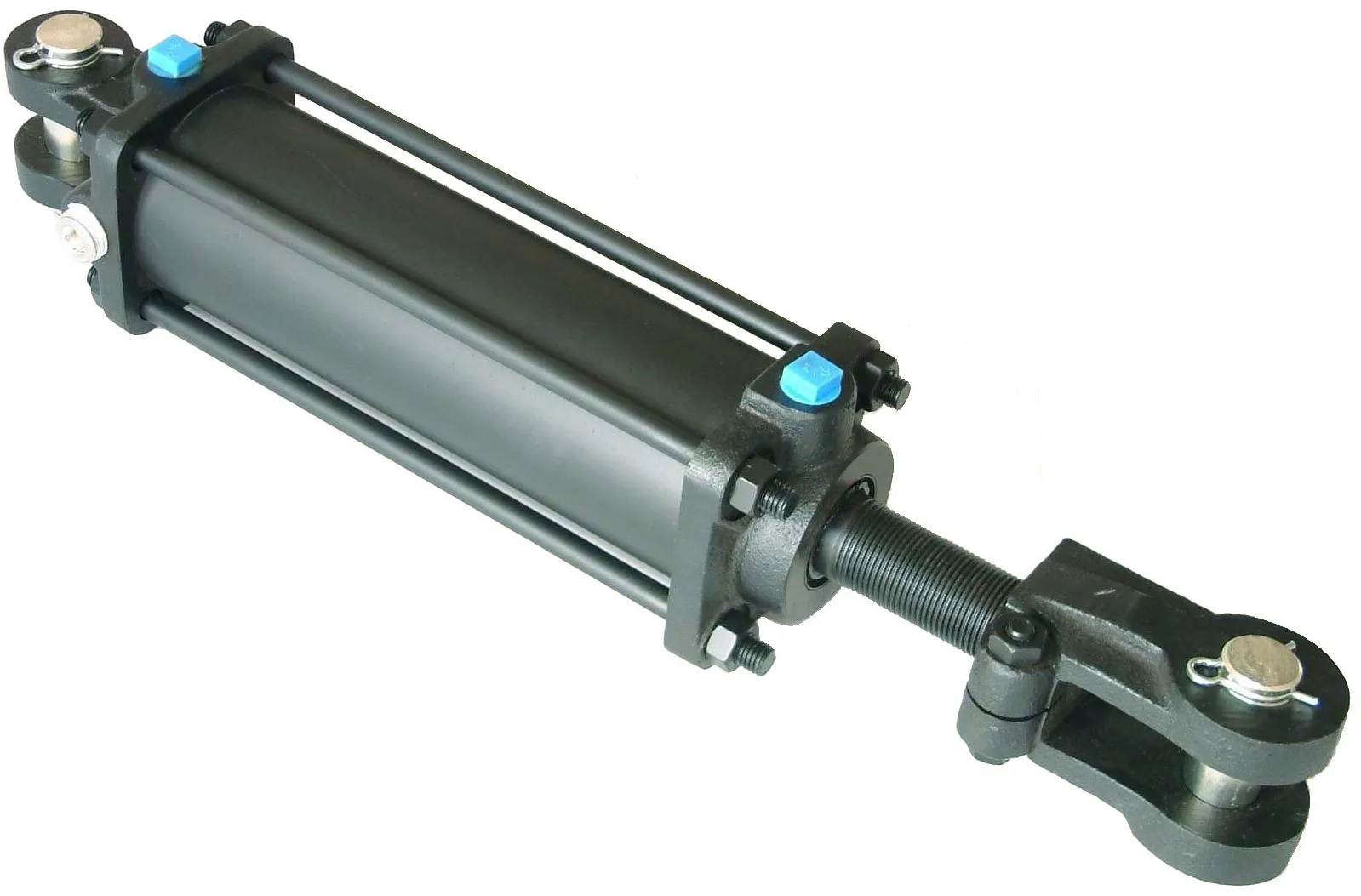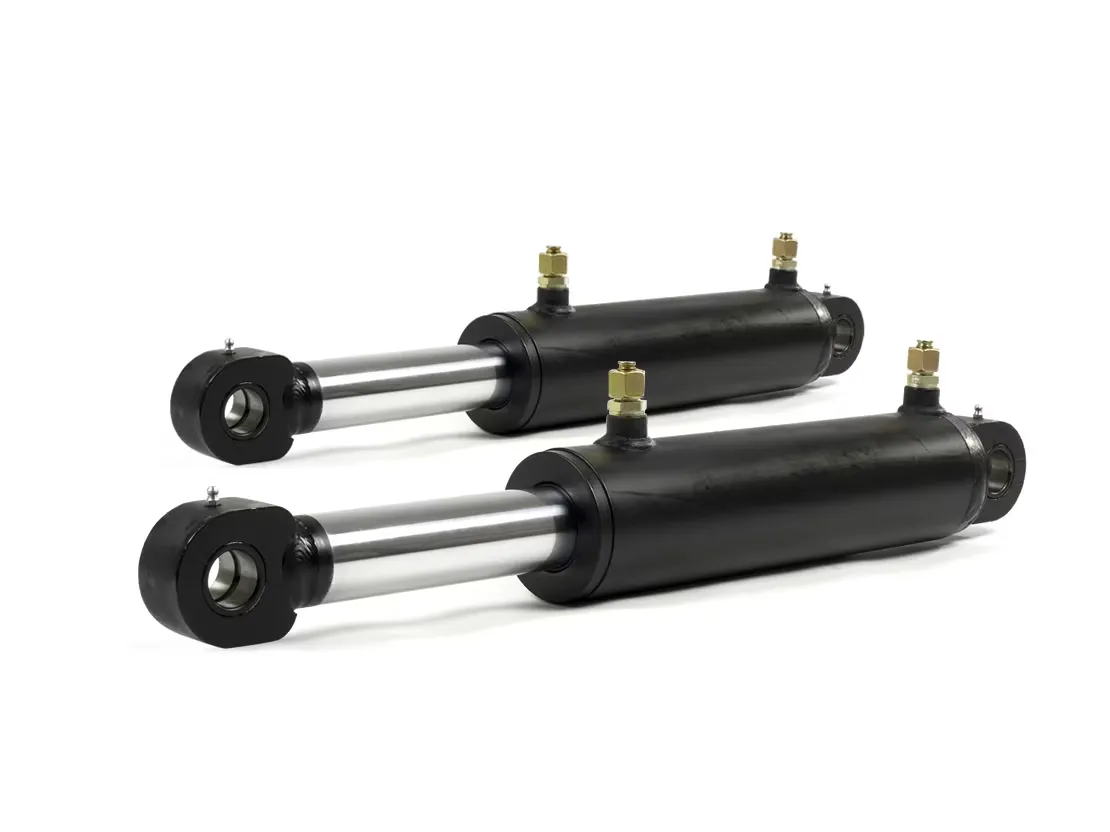Double Rod Single Acting Hydraulic Cylinder Material Selection: A Comprehensive Guide
When it comes to selecting materials for double rod single acting hydraulic cylinders, the choices are critical for ensuring performance, longevity, and safety. The right material can make a significant difference in the operational efficiency and reliability of hydraulic systems. This article examines the various material options, their properties, and considerations in material selection for double rod single acting hydraulic cylinders.
Understanding Double Rod Single Acting Hydraulic Cylinders
Double rod single acting hydraulic cylinders are unique in their design and functionality. Unlike traditional hydraulic cylinders that have a single rod extending from one end, these cylinders feature rods on both sides. This design allows for balanced force distribution and enables the cylinder to perform more effectively in applications where precision and control are paramount.
Key Applications
Double rod single acting hydraulic cylinders are widely used in various industries, including:
– Manufacturing: Used in automated machinery and conveyor systems.
– Construction: Common in equipment such as excavators and lifts.
– Automotive: Employed in hydraulic presses and assembly lines.
– Agriculture: Utilized in tractors and other farm machinery.
Material Properties and Selection Criteria
Choosing the right material for hydraulic cylinders involves understanding the properties of various materials and how they align with the operational demands of the application. Below are some essential criteria and properties to consider:
1. Strength and Durability
Hydraulic cylinders must withstand high pressures and loads. The material selected must have sufficient tensile strength to prevent deformation or failure. Common materials include:
– Steel: High tensile strength and excellent durability make steel a popular choice. It can withstand extreme conditions and is often used in heavy-duty applications.
– Aluminum: Although lighter than steel, aluminum has lower tensile strength. It is suitable for applications where weight reduction is essential, but its use may be limited to lower pressure scenarios.
2. Corrosion Resistance
Hydraulic cylinders often operate in harsh environments where exposure to moisture and chemicals can lead to corrosion. Therefore, selecting materials that can withstand such conditions is crucial.
– Stainless Steel: Known for its excellent corrosion resistance, stainless steel is ideal for environments with high humidity or chemical exposure. It tends to be more expensive but offers long-term benefits in terms of maintenance and longevity.
– Coated Steel: Steel can be coated with protective layers (like paint or galvanization) to enhance its corrosion resistance. This option provides a cost-effective solution while still offering decent protection.
3. Weight
In applications where weight is a concern, such as mobile machinery, the weight of the hydraulic cylinder plays a vital role in overall equipment performance.
– Aluminum: As mentioned, aluminum is significantly lighter than steel. This quality allows for easier handling and reduced energy consumption in mobile applications.
– Composite Materials: Advanced composite materials may also be considered for specific applications, offering a balance between strength and weight.
4. Cost Considerations
Budget constraints will often influence material selection. While it’s essential to consider the initial material costs, it’s also crucial to evaluate the long-term costs associated with maintenance and replacement.
– Steel: Generally more affordable initially but might require more maintenance in corrosive environments.
– Aluminum: Higher initial costs may be justified by lower maintenance needs and longer life in specific applications.
5. Thermal Conductivity
Thermal properties can also influence material selection, especially in applications where temperature fluctuations are common.
– Steel: Has lower thermal conductivity compared to aluminum, which can be advantageous in preventing overheating in certain applications.
– Aluminum: Offers higher thermal conductivity, which can be beneficial in applications requiring heat dissipation.
6. Machinability
The ability to machine materials into specific designs is another important consideration, particularly for custom or specialized hydraulic cylinders.
– Steel: Generally easy to machine, allowing for precise manufacturing of components.
– Aluminum: Also machinable but requires specialized tools to achieve desired tolerances.
Common Materials for Double Rod Single Acting Hydraulic Cylinders
In the selection process, several materials are commonly used for manufacturing hydraulic cylinders. Below are the most prevalent materials along with their characteristics:
1. Carbon Steel

Carbon steel is one of the most widely used materials for hydraulic cylinders due to its strength and affordability. It is often treated or coated to enhance corrosion resistance.
– Advantages:
– High strength-to-weight ratio
– Cost-effective
– Versatile for various applications
– Disadvantages:
– Susceptible to rust without proper treatment
– Heavier compared to aluminum

2. Stainless Steel
Stainless steel is favored in applications that require high corrosion resistance. It offers durability and can handle a wide range of temperatures and pressures.
– Advantages:
– Excellent corrosion resistance
– Suitable for high-temperature applications
– Low maintenance
– Disadvantages:
– Higher material costs
– More challenging to machine compared to carbon steel
3. Aluminum Alloys
Aluminum alloys are lightweight and offer good corrosion resistance, making them suitable for specific applications where weight savings are critical.
– Advantages:
– Lightweight
– Good corrosion resistance
– Easier to handle and install
– Disadvantages:
– Lower tensile strength than steel
– Limited use in high-pressure applications
4. Cast Iron

Cast iron is sometimes used for hydraulic cylinders, particularly in applications where weight is not a concern. It has excellent wear resistance but can be brittle.
– Advantages:
– Good wear resistance
– Stable under high pressure
– Disadvantages:
– Heavy
– Brittle and prone to cracking under stress
5. Composite Materials
Emerging technologies have led to the development of composite materials for hydraulic cylinders. These materials can provide a balance of strength, weight, and corrosion resistance.
– Advantages:
– Lightweight
– High strength-to-weight ratio
– Excellent corrosion resistance
– Disadvantages:
– Higher manufacturing costs
– Limited availability and knowledge in the industry
Environmental Considerations
In today’s world, environmental sustainability plays a crucial role in material selection. The following aspects should be considered:
1. Recyclability
Materials like steel and aluminum are highly recyclable, which can reduce the environmental impact of production and disposal.
2. Manufacturing Process
The energy consumption and emissions associated with the manufacturing process of materials should be evaluated. For instance, aluminum production is energy-intensive, while steel can be produced more sustainably using recycled materials.
3. Life Cycle Assessment

Conducting a life cycle assessment (LCA) can provide insights into the overall environmental impact of the selected material from production to disposal, aiding in making more informed choices.
Conclusion
Selecting the right material for double rod single acting hydraulic cylinders is a multifaceted process that involves careful consideration of strength, durability, corrosion resistance, weight, cost, and environmental impact. By understanding the properties of various materials and their suitability for specific applications, manufacturers can ensure the optimal performance of hydraulic systems.
For those looking for high-quality hydraulic cylinders, EVER-POWER offers a comprehensive range of products designed with durability and performance in mind. Their commitment to quality and innovation ensures that you receive a hydraulic solution that meets your specific needs. Explore EVER-POWER’s offerings today to find the right hydraulic cylinder for your application!
